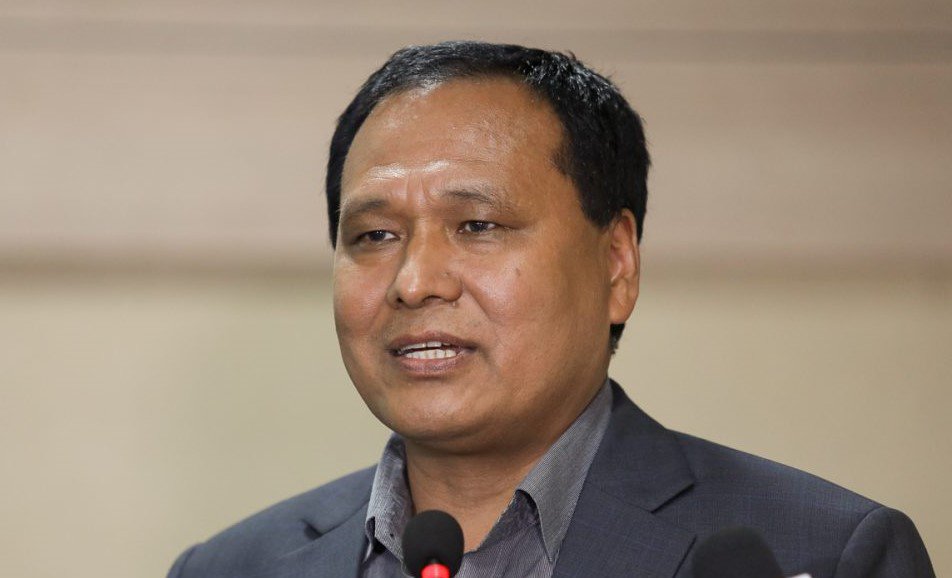The Dark Side of Kulman Ghising: Shocking Allegations Revealed!

Kulman Ghising, the Managing Director of the Nepal Electricity Authority (NEA), is widely celebrated as the man who ended load-shedding in Nepal. His leadership at the NEA during the elimination of power cuts in 2016 earned him the title of a "national hero." However, recent years have seen a rise in controversy and allegations surrounding his appointment and conduct. While his supporters dismiss these accusations, they have sparked widespread discussion in Nepali society.
Background
The controversy around Kulman Ghising's appointment is deeply intertwined with Nepal's political landscape. In 2020, the then-Prime Minister Pushpa Kamal Dahal 'Prachanda' removed the incumbent Managing Director of NEA, Hitendra Dev Shakya, and appointed Ghising in his place. Shakya was reassigned to a newly created position within the Energy Commission's Secretariat, a move that was widely criticized as politically motivated. Shakya subsequently filed a case against this decision in the Supreme Court, which remains unresolved.
Detailed Allegations
-
Power-Hungry: One of the most significant allegations against Kulman Ghising is that he is power-hungry. His appointment was seen as a result of political influence, with Shakya being removed without valid reason to make way for Ghising. Critics argue that this reflects the unethical practice of prioritizing political connections over merit.
-
Corruption: The NEA handles large financial transactions, including procurement and major contracts. Ghising has been accused of involvement in irregularities and corruption within these processes. The lack of transparency in the NEA's financial dealings has led to questions about Ghising's integrity.
-
Manipulating Activists: Ghising is accused of leveraging social media influencers and activists, such as YouTubers and public figures like Punya Gautam, to bolster his image. It is alleged that he financially incentivizes these individuals to promote his work and silence criticism, raising concerns about the authenticity of his public persona.
-
Media Management: Another accusation against Ghising is that he spends exorbitant amounts on media management to maintain a positive image. Critics claim that he uses these resources to hide irregularities and ensure favorable coverage, diverting funds that could be used for public benefit.
-
Support for the Maoists: Ghising's political affiliation has also come under scrutiny. He is alleged to be a supporter of the Communist Party of Nepal (Maoist Centre), the same party that was in power when he was appointed. There are accusations that he has provided financial support to the party, both legally and illegally, in exchange for political backing.
-
Unethical Practices: The manner in which Shakya was removed to appoint Ghising has been criticized as unethical. Many argue that it undermines administrative ethics and sets a dangerous precedent for political interference in public institutions.
-
Undue Reverence: Some critics believe that Ghising's role in ending load-shedding has been exaggerated. They argue that the real credit goes to increased electricity imports from India, and that Ghising's contribution was marginal. The narrative around him, they claim, has been artificially inflated to portray him as a savior.
-
Arrogance: There are also allegations that Ghising is arrogant and dismissive in his dealings with subordinates. While he maintains a positive image in the media, some insiders describe him as condescending and difficult to work with, raising concerns about his leadership style.
Suggestions for the Nation
While Kulman Ghising's leadership has undeniably brought significant improvements to Nepal's electricity sector, the allegations against him cannot be ignored. It is crucial for him to address these concerns transparently and take corrective actions where necessary.
Ghising should consider stepping away from the role if it becomes a source of controversy and instead focus on contributing to the nation in other ways. True integrity is demonstrated by one's actions, not just by holding a position of power. If Ghising is genuinely committed to Nepal's progress, he should be willing to work for the nation's benefit, even without an official title.
It is also essential for the Nepali public to recognize that no single individual is indispensable. National development is a collective effort, and everyone has a role to play in ensuring the country's prosperity. By promoting transparency, accountability, and ethical leadership, Nepal can continue to progress, regardless of who holds key positions.

![From Kathmandu to the World: How Excel Students Are Winning Big [Admission Open]](https://nepalaaja.com/img/70194/medium/excel-college-info-eng-nep-2342.jpg)
